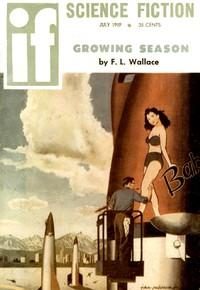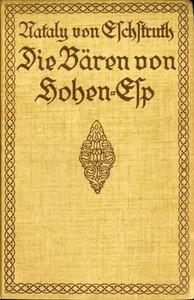Read this ebook for free! No credit card needed, absolutely nothing to pay.
Words: 16427 in 9 pages
This is an ebook sharing website. You can read the uploaded ebooks for free here. No credit cards needed, nothing to pay. If you want to own a digital copy of the ebook, or want to read offline with your favorite ebook-reader, then you can choose to buy and download the ebook.
k. Day was breaking then. Leary made a short turn close to the coral reefs, and cut in between the German and the shore. His boat lapped the stern of the German vessel, only about three hundred yards away. Suddenly the orders to clear for action were heard throughout the American ship. All preparations had been made for this, and with despatch the decks were cleared, ammunition was brought up, and the guns were loaded. The Germans saw what was going on, and they cleared for action also. Then the two ships went down the coast, dipping to the swells, and stripped for war. It was a trying occasion, and both commanders knew what tremendous results were dependent upon the outcome of their actions that day. Steadily the ships held their course. When they approached the point where the forts were situated, the German ship slowed up and dropped anchor. Leary did the same. It was broad daylight now. Soon a boat was lowered from the German ship, and some German officials were sent ashore under a guard. Then it was that Leary ordered one of his boats cleared away to carry this note of warning to the Captain of the German ship, which Leary had written on the way down and after both ships had cleared for action:
The American officer was rowed over to the German ship and gave the note to the officer of the deck, and returned without waiting for any reply. Then the crews of the two vessels stood by their guns for hours waiting for developments. Leary's note was polite and firm; but when such a note is sent from the commander of one war-ship to the commander of another war-ship, and when the decks of both ships are cleared for action, it can mean but one thing--war. Leary meant that no shot should go over his deck into the settlement on shore. For several hours the two ships lay at anchor, with the crews waiting to spring at each other. Soon after noon the Germans got under way again, and made a long detour down the coast, with the Americans close behind, and still ready for battle. Then slowly the German vessel turned about and steamed for Apia Harbor. Leary followed with his ship. Both came to anchor in the places from which they had started early in the day, and that incident, laden with frightful possibilities for two great nations, was ended.
Leary was ordered home soon afterward, and it is known that he received the personal thanks from our officials in the highest seats of government. The strangest part of the affair, however, is the fact that no official notice was ever taken of his splendid determination to uphold the honor of the American flag. Leary's friends say that he has not so much as a piece of paper to show from the Navy Department that he ever stood up for the honor of the flag in so signal a manner in Samoa. Congress passes votes of thanks to men who are conspicuous in saving life on the high seas. Congress never passed a vote of thanks to Leary. I need not go into the reasons for this apparent neglect. If republics are ungrateful, it may be said that Leary never asked for any such action, nor even desired it. He had performed his sworn duty, and that was sufficient for him. He was probably the youngest officer in the navy ever called upon to perform such a responsible task, and if there seemed to be envy on the part of those older and of higher rank in the service, "Dick" Leary went his way modestly, and asked for no public recognition of his services.
His native State, however, Maryland, could not let such a display of patriotism go unrewarded, and the Legislature voted him a handsome gold watch. It was presented to him in the presence of a brilliant company at the State Capitol. The national government kept silent officially, however, and that silence has never been broken.
Leary probably cares least of all for this apparent oversight. It has been given to few officers in the American navy to write,
That is Leary's reward. It is enough for him to know that he did his duty, and that the people respect him for it. As Americans, we are proud of certain sentiments uttered by those who have worn our country's uniform in time of war. "Don't give up the ship!" still rings in the ears of all patriotic citizens. "If any man hauls down the flag, shoot him on the spot!" still inspires and thrills us. With these, and other sentiments like them, I wish to write Leary's declaration,
WOOD-CARVING.
BY J. HARRY ADAMS.
A knowledge of drawing and modelling will be very helpful to the young carver, as the outline of ornament can be readily drawn, while to carve objects from wood the art of modelling form is most desirable and essential to obtain a satisfactory result.
If the beginner possesses a knowledge of form acquired by drawing and modelling, then the art of wood-carving can be readily and quickly mastered; but even if these advantages should be lacking, it is possible that considerable progress can be made by those who will follow the instructions given on these pages.
The most important feature of carving is the ability to sharpen and maintain the little tools, and when this is mastered, more than half the difficulty has been overcome. Carving-tools can be purchased at most any large hardware store, and as there are a great many shapes and styles of edges to select from, a few suggestions will give a clear idea of necessary ones to begin with.
At the start a numerous assortment of tools will not be necessary, as the flat-work will meet with the best success at the hands of the beginner. Six or eight chisels will constitute a good set, and those shown in Fig. 3 will answer very well.
Free books android app tbrJar TBR JAR Read Free books online gutenberg
More posts by @FreeBooks










